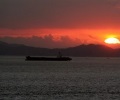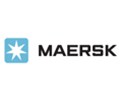Cruise ship operator Carnival sees LNG as today’s best low-CO2 marine fuel option

LNG is the best available marine fuel today to help Carnival Corp’s large cruise ships cut their CO2 emissions and other pollutants, a senior executive said.
The shipping sector is under pressure to drastically cut its emissions, with the International Maritime Organization setting a goal to cut total annual international shipping emissions by at least 50% by 2050 compared with 2008.
Carnival has one LNG-powered ship in use and another 10 on order, its senior vice president for maritime affairs, Tom Strang, told a sustainable energy event in Brussels.
“We invested in LNG because frankly it’s the best, most widely available fuel today, which addresses all of the current regulations,” Strang said. “It solves the local pollution issues and it gives us an appreciable reduction in carbon emissions.”
Using LNG means zero SOx, 75%-85% cut in NOx, and almost zero particulate matter, he said.
“For us that’s the reason that in deep sea shipping there is really no alternative,” Strang said.
Carnival has already reached its 2020 target to cut the intensity of its CO2-equivalent emissions by 25% compared with 2005 levels, measured in grams of CO2 per available lower berth-km.
It is also on track to cut its carbon intensity by 40% compared with 2008 by 2030, in line with IMO goals, Strang said.
CHEAP LNG
Building the latest technology ships is more expensive, but LNG is a very competitively priced fuel today, he said.
Carnival’s first LNG ship, the AIDAnova, is regularly refueled with 1000 mt of LNG.
“These ships cost upwards of a billion dollars each. We wouldn’t be doing it if the business case didn’t make sense,” Strang said. “We firmly believe that as a long-term transition fuel LNG leads us into a sustainable future. It gives us opportunities to look at introducing bio and synthetic fuels in the future.”
Strang said he thought nearly half of the large cruise ships being built today are LNG-powered.
HYBRID SOLUTIONS
Carnival is also looking at alternative low-carbon fuels, such as hydrogen and ammonia. The problem for these is the current lack of infrastructure to deliver them. This is also the problem for using shore power to reduce emissions from ships idling in port.
“Our company has the largest fleet of electrically-powered vessels in the cruise industry, of which around about half have shore power capability,” Strang said.
There are only two ports in Europe where you can connect a cruise ship today, however, and about 13 in the world, he said.
The future would involve hybrid solutions, which would be a step change for the maritime sector.
“We’ve been used to a single fuel solution,” Strang said. “The future is multiple solutions — what works in short sea shipping may not work in deep sea. Different sectors will have different solutions.”
Source: Platts

 Hellenic Shipping News Worldwide Hellenic Shipping News Worldwide, Online Daily Newspaper on Hellenic and International Shipping
Hellenic Shipping News Worldwide Hellenic Shipping News Worldwide, Online Daily Newspaper on Hellenic and International Shipping





















 PG-Software
PG-Software